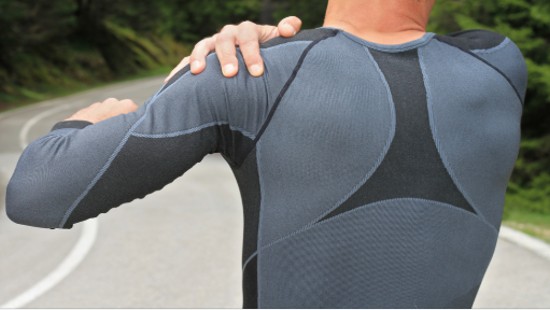If You Have a Broken Bone...
Our fracture specialists can assess and treat your injury. And we'll see you within one business day.

At University of Maryland Orthopaedics, our shoulder specialists can treat rotator cuff tendonitis with conservative, non-operative treatments.
The shoulder joint is a ball and socket type joint where the top part of the arm bone forms a joint with the shoulder blade. The rotator cuff holds the head of the humerus into the scapula and controls movement of the shoulder joint.
The tendons of the rotator cuff pass underneath a bony area on their way to attaching the top part of the arm bone. When these tendons become inflamed, they can become more frayed over this area during shoulder movements.
Sometimes, a bone spur may narrow the space even more. This problem is called rotator cuff tendonitis (or impingement syndrome), which may be due to:
Early on, pain occurs with overhead activities and lifting your arm to the side. Pain is more likely to be in the front of the shoulder and may radiate to the side of the arm. However, this pain always stops before the elbow. If the pain travels beyond the arm to the elbow and hand, this may indicate a pinched nerve.
There may also be pain with lowering the shoulder from a raised position. At first, this pain may be mild and occur only with certain movements of the arm. Over time, pain may be present at rest. Night pain is very common, especially when lying on the affected shoulder.
You may have weakness and loss of motion when raising the arm above your head. Your shoulder can feel stiff with lifting or movement. It may become more difficult to place the arm behind your back.
Treatment involves resting the shoulder and avoiding activities that cause pain. Your treatment may involve:
You should start physical therapy to learn exercises to stretch and strengthen the muscles of your rotator cuff. If the pain persists, or if therapy is not possible because of severe pain, a steroid injection may reduce pain and swelling in the injured tendons to allow effective therapy.
To make an appointment with one of our shoulder surgeons, call 410-448-6400 or request an appointment online.
Our fracture specialists can assess and treat your injury. And we'll see you within one business day.